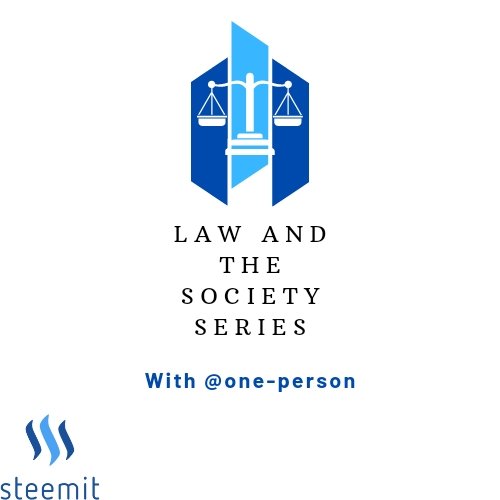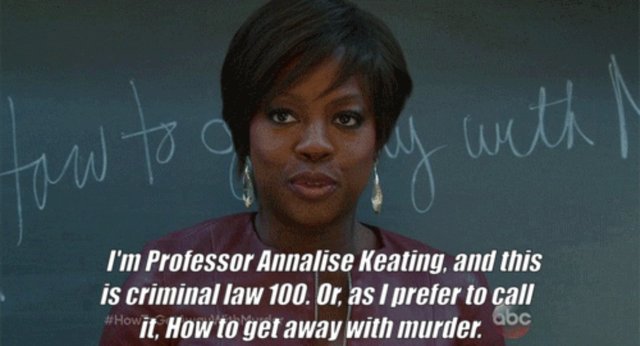
No I am not going to teach you how to commit murder and get away with it. I'm just making an allusion to the popular TV series "How to get away with murder" in which the whole drama started from a criminal law class where the Professor had made the introduction below

image source
I am simply here to give you basic education on the concept of criminal law.
What is a crime?
I'll start by giving a working definition of what a crime is. Legally, a crime can be defined as an act or an omission which is illegal by virtue of a statutory enactment that has been created to that effect, prior to the action of omission and which is punishable by the law.
The inclusion of the word omission in the definition is deliberate and the aim is to ensure that everyone reading this knows that a crime is not only limited to an action. When you fail to carry out an action which you're legally required too, it may amount to a crime.
To further explain the definition offered, illegality is a constant element in every crime and it is one of the things that much l must be proven in the action or omission before the element of a crime is confirmed. Furthermore, the element of illegality will only be confirmed when there is an existing law, prohibiting the act or omission as at the time the act or omission occurred. If the enactment is birthed after the act or omission, it means that a crime was not committed and the person cannot be held liable.
Basic Elements of a Crime
When a crime has been committed, to ensure that the person suspected to have committed the crime is fully sanctioned by law, there are 2 elements that have to be proven before a court of law and they are:
i. Actus Reus
ii. Mens Rea
Actus Reus
This refers to the act or omission which has been prohibited my an enacted statute. It is important at this point to know that the action or omission to act has to be a voluntary one to count as Actus Reus for a crime. Involuntary actions occuring in the course of sleepwalking or epileptic seizures would not count as a voluntary action.
Mens Rea
This the mental element which could either be deliberate, reckless or negligent. The mental element of deliberately or recklessly carrying out an act which could end up harming another only need to be proven that the act was either deliberate or reckless. In the case of negligence, the statutory provision defining the crime will need to include the element of negligence.
It is also possible for liability to be existent without the element of Mens Rea. Where the statute has it defined as so. An example of such is statutory rape, because lack of knowledge of the fact that the child is below the age of consent is not a guilt purgatory factor.
In the operation of any criminal justice system, the goal that is sought to be achieved is to ensure that any person that commits a crime faces the consequences of the action or omission and to this effect, it is not only enough to prove the act or omission, the intention to commit crime needs to be proven to ensure the full punishment is dished out if found guilty.
GET 300 STEEM NOW
THE NEXT GENERATION OF DEFI ON STEEM
Join Quickly to get the 300 STEEM Airdrop
For More info and Claim airdrop CLICK HERE
Downvoting a post can decrease pending rewards and make it less visible. Common reasons:
Submit
I just followed up from the episode 1 of this article. I must say I enjoyed reading the article. I look forward to reading more from you.
Downvoting a post can decrease pending rewards and make it less visible. Common reasons:
Submit
I'm a glad you enjoyed it. Thank you for the encouragement.
Downvoting a post can decrease pending rewards and make it less visible. Common reasons:
Submit